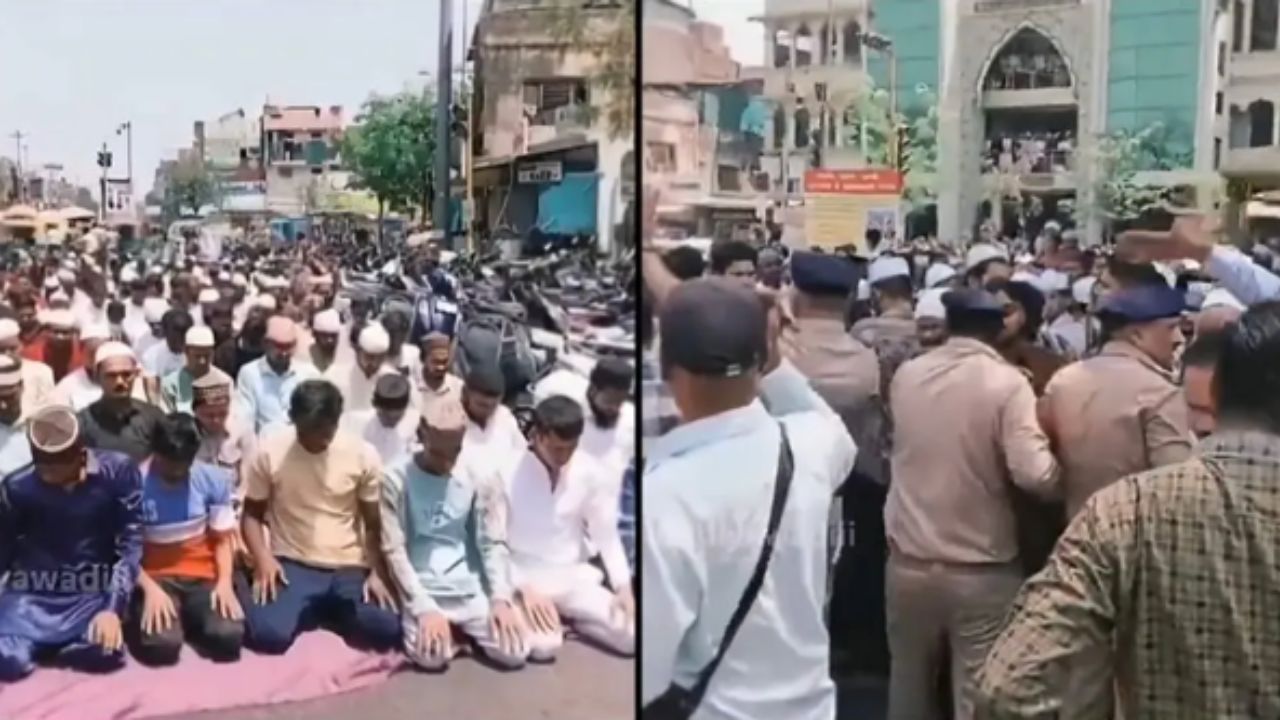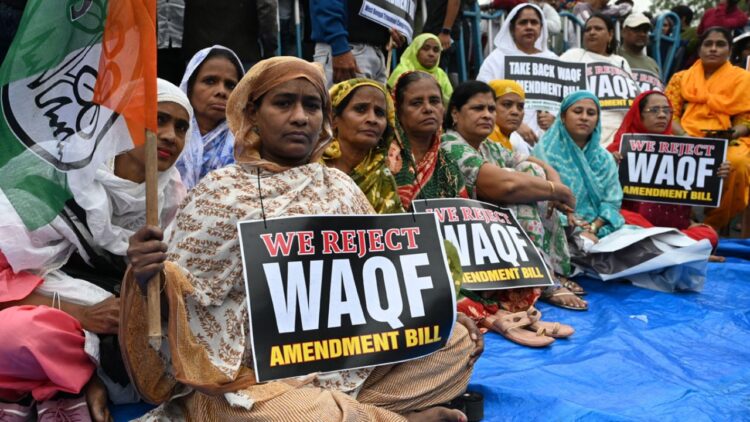The recent spate of violence across parts of the country against the much-needed Waqf (Amendment) Bill, 2025 is not only disturbing but also a direct assault on law, order, and democratic processes. While peaceful dissent is a constitutional right, what unfolded in West Bengal is nothing short of a calculated, violent outburst meant to intimidate and destabilize.
In Murshidabad, West Bengal, a violent mob mobilized after Friday prayers resorted to anarchy under the garb of protest. The demonstrators, from sections of the Muslim community, blocked key intersections like Sajurmor in Sutir and the New Dakbangla junction in Shamsherganj, demanding a rollback of the new Waqf legislation. But the protest soon morphed into a full-blown riot: vehicles were set ablaze, trains and railway stations vandalized, and stones hurled at police and commuters.

The law enforcement machinery, clearly outnumbered and ill-prepared, struggled to contain the rampage. In a shocking turn of events, several policemen had to seek refuge inside a mosque to escape the murderous mob. Even the SDPO of Farakka suffered injuries in the attack, revealing just how lawless the situation had become. Rail services were paralyzed as protestors sat on tracks and attacked passing trains, causing widespread disruption and fear.

In stark contrast, Ahmedabad witnessed a similar attempt to create chaos—but with an entirely different outcome. A group gathered near the Kalandari Mosque in the Rakhial area, allegedly with plans to protest by offering Namaz in the middle of a busy road. However, the Ahmedabad police, alert and proactive, swiftly intervened. Detentions were made before the situation could spiral, and calm was restored without allowing chaos to take root.
This comparison highlights a critical and uncomfortable truth: where competent governance and firm policing prevail, order is maintained. But in West Bengal—ruled by the perpetually anti-Hindu and minority appeasement-driven Chief Minister Mamata Banerjee—law enforcement is perpetually crippled, often choosing to look the other way rather than act decisively.
The Waqf (Amendment) Bill, 2025 has been welcomed by large sections of the population who see it as a much-needed reform in curbing misuse of Waqf properties. But it is being opposed by hardline elements and political actors who continue to thrive on divisiveness and appeasement.

















Comments